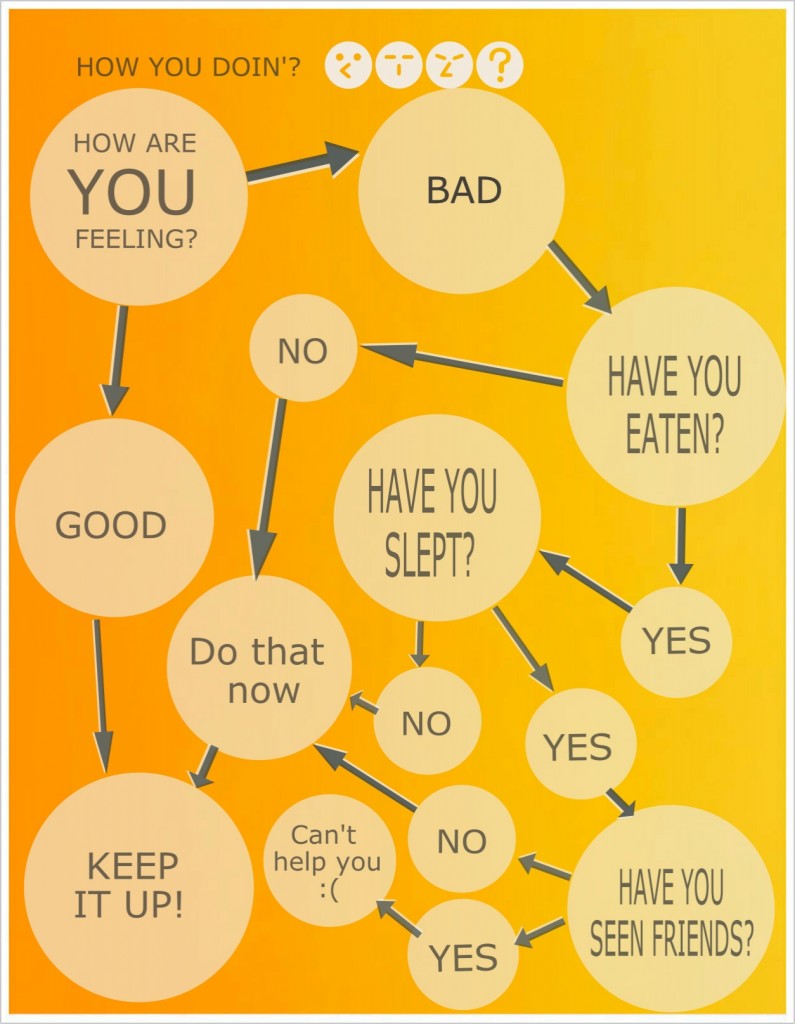
- Know what you can handle
As a naïve and arrogant second-year, I thought I could take on a six-course workload. And start a company. After a summer of working full-time and taking courses. And still be able to have all the fun I’d had as a care-free first year. Obviously you can see where this is headed…
I should have seen the second term burn-out coming because by then I was running on empty. At the pace I was going for first term, I had to take a reduced course load for winter term or face the pending implosion. I’m pretty sure all the bells and whistles were going off but I had just hit “dismiss” (it’s ill-advised).
Anyway, the point of the story is that it’s okay. Being honest about what you’re able to handle will make your life significantly easier in the long term. And that term with a reduced course load has had no significant bearing on my ability to graduate or otherwise do well in school. It probably helped, in fact.
- Find your person
This is advice that was given at the conference by Vic’s Dean of Students, Kelley Castle. Finding your person doesn’t mean finding a psychologist or professional help, she said. It can refer to finding a mentor, parent or good friend to rely on.
When those bells and whistles do go off and you keep hitting “dismiss”, you’ll be sure to want to have surrounded yourself with people who can tell you that you should probably shift your priorities.
- Get help early
Not just limited to mental illness but to issues of mental health and academic advising in general, it’s best to seek help early. Though there are services and staff who want to help and students who may need it, the two don’t often meet until the situation is dire. At that point, dropping courses can be the only option.
Dropping courses can be a difficult decision considering students often have to do so after they have paid tuition. More lenient policies, such as those of other universities, help take the financial burden off students by back-dating the course drop so that the student is not financially penalized for it. Part of this delay in reaching out for help may stem from problems that begin before university does, said some conference presenters. Students in high school are often told to toughen up in preparation for university’s more rigorous workload, different teaching style and lack of one-on-one attention.
In fact, there are perhaps more supports at university, from academic advising to peer support to health services. In university, you don’t always have to ‘be tough’, as you may have been taught. But you do have to be willing to reach out.
Lastly, it’s important to remember that there are staff and faculty who are available to support you. And sometimes, they’ve had a very personal connection to issues of mental health. U of T’s own Chancellor, Michael Wilson, had begun the conference by talking about his son who had committed suicide and the impacts of mental illness on his family. Staff and faculty know that break ups, deaths and mental health crises happen and are likely more understanding than is often assumed. They are, after all, people too.- Kay
0 comments on “Minding Our Minds: Unpacking Mental Health”